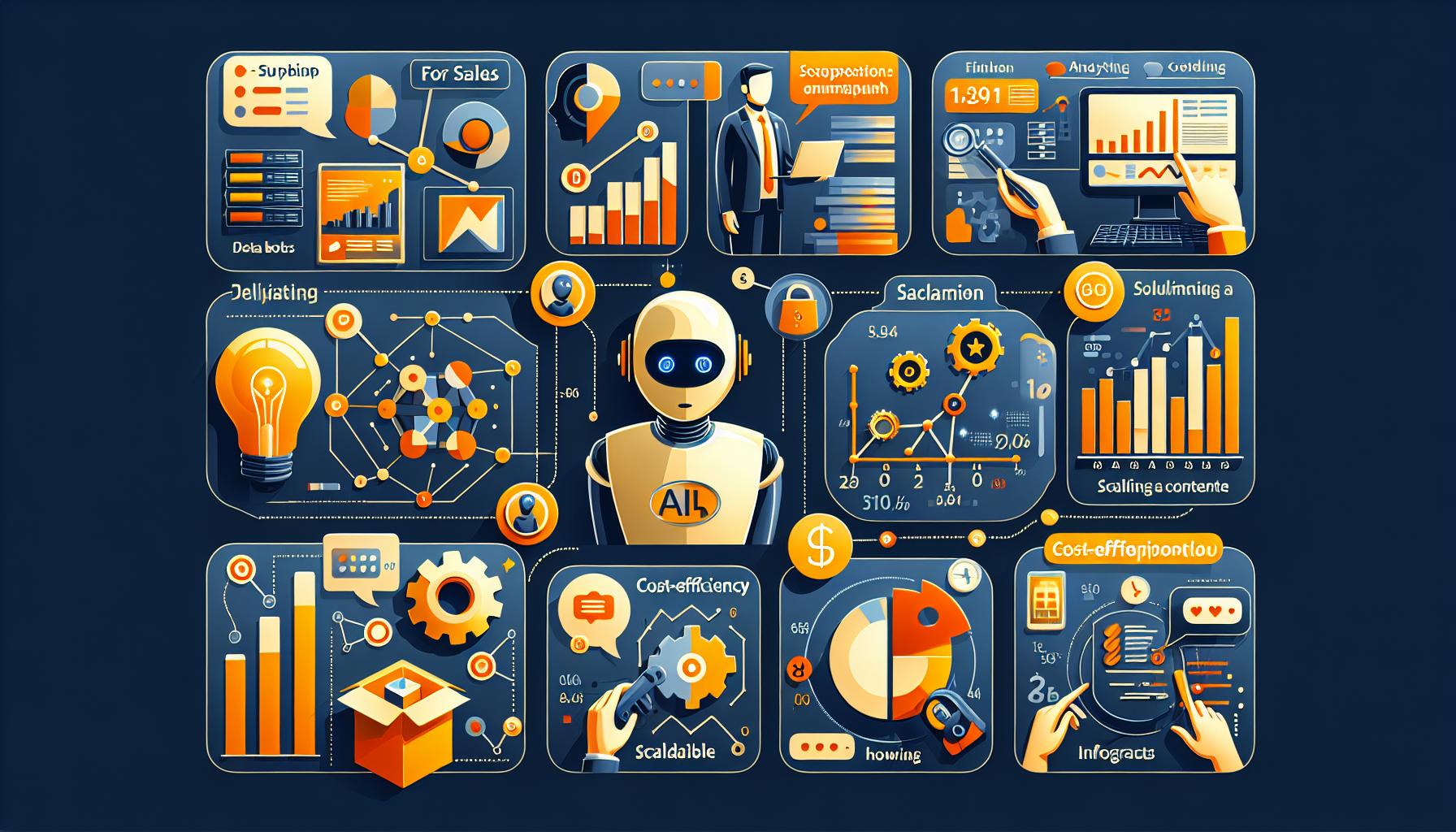AI Agents: From Sales Assistants to Content Creators

Introduction
The rapid advancements in artificial intelligence (AI) have revolutionized various industries, and one of the most notable areas of impact is the role of AI agents. These sophisticated algorithms are not just limited to automating sales support but have also proven their mettle in generating high-quality content, such as training videos and blogs. This article delves into the transformative power of AI agents, analyzing their cost-efficiency and scalability, and showcasing successful implementations through case studies.
The Evolution of AI Agents
AI agents have come a long way from being simple chatbots to becoming integral components of business operations. Initially, these agents were designed to handle basic customer inquiries, freeing up human resources for more complex tasks. However, the evolution of machine learning and natural language processing (NLP) has enabled AI agents to perform a wide range of functions, from sales support to content creation.
Cost-Efficiency of AI Agents
One of the most compelling advantages of using AI agents is their cost-efficiency. Traditional methods of sales support and content creation require significant human resources, which can be expensive and time-consuming. AI agents, on the other hand, can handle multiple tasks simultaneously, reducing the need for a large workforce. This not only cuts down on labor costs but also minimizes the risk of human error.
For instance, a single AI model can be trained to handle customer inquiries, process transactions, and generate content, all at a fraction of the cost of employing multiple human workers. Moreover, AI agents can work around the clock, ensuring that business operations run smoothly even outside regular working hours.
Scalability of AI Agents
Another significant benefit of AI agents is their scalability. As businesses grow, the demand for sales support and content creation also increases. Scaling up human resources to meet this demand can be challenging and costly. AI agents, however, can be easily scaled to accommodate growing business needs.
For example, an AI agent can be programmed to handle an increasing number of customer inquiries without the need for additional training or resources. Similarly, an AI content creator can generate more articles or videos as the demand rises, ensuring that the quality of content remains consistent.
Case Study: AI in Sales Support
One of the most successful implementations of AI agents in sales support is seen in the e-commerce industry. A leading online retailer implemented an AI agent to handle customer inquiries and process orders. The AI agent was trained to understand customer queries, provide accurate responses, and even upsell products based on customer preferences.
The results were impressive. The AI agent not only reduced the workload of human customer service representatives but also increased sales by 20%. Additionally, the AI agent's ability to work 24/7 ensured that customers received prompt assistance, leading to higher customer satisfaction rates.
Case Study: AI in Content Creation
AI agents have also made significant strides in content creation. A prominent educational platform utilized an AI agent to generate training videos and blog posts. The AI agent was equipped with advanced NLP capabilities, enabling it to create engaging and informative content that resonated with the target audience.
The AI-generated content received positive feedback from users, who appreciated the high-quality and relevance of the material. Moreover, the platform was able to produce a larger volume of content without incurring additional costs, demonstrating the scalability and cost-efficiency of AI agents in content creation.
Conclusion
The transformative power of AI agents is undeniable. From automating sales support to generating high-quality content, these intelligent algorithms offer a cost-efficient and scalable solution for businesses. The case studies highlighted in this article illustrate the successful implementation of AI agents in various industries, showcasing their potential to revolutionize business operations.
As AI technology continues to evolve, the capabilities of AI agents are expected to expand further, offering even more opportunities for businesses to streamline their operations and enhance their productivity. The key questions that still need to be answered include how to ensure the ethical use of AI agents and how to address potential challenges related to data privacy and security.
For businesses looking to leverage the power of AI agents, the next steps involve identifying the specific areas where AI can add value, investing in the right technology, and continuously monitoring and optimizing the performance of AI agents to achieve the desired outcomes.




